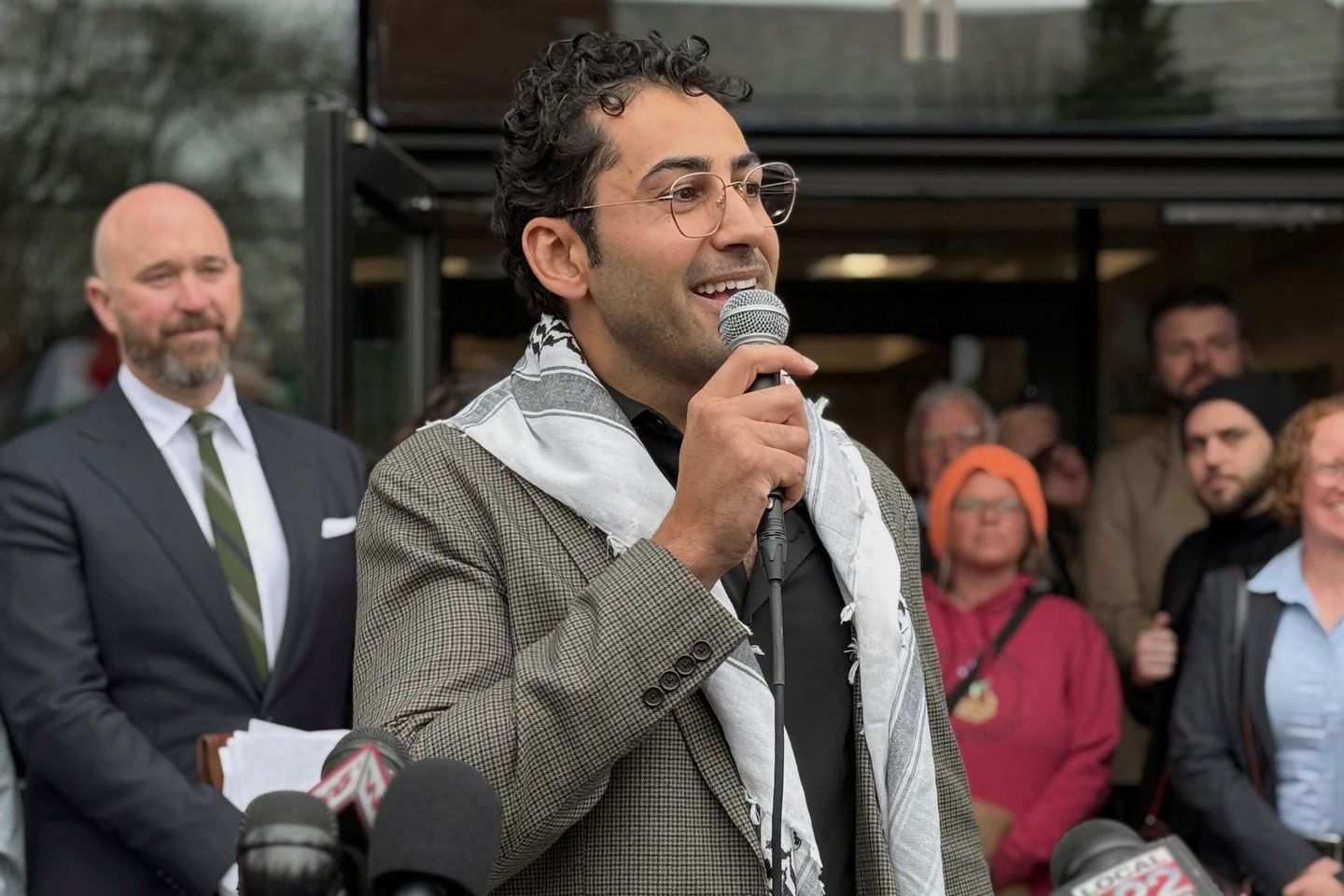
A federal judge ordered the release Wednesday of Mohsen Mahdawi, a Palestinian student the Trump administration has been trying to deport for anti-Israel activism.
Judge William Sessions III, who sits in Vermont, said Mr. Mahdawi is not a flight risk nor a danger to the community.
But the judge went further, according to local news coverage of the hearing, comparing the Trump administration’s attempt to punish foreign students who have taken part in pro-Palestinian activities over the last two years to Cold War “Red Scare” tactics.
After being released, Mr. Mahdawi spoke to a crowd outside the courthouse.
“To my people in Palestine: I feel your pain, I see your suffering; and I see freedom and it is very very soon,” he said.
Mr. Mahdawi was born in the West Bank, a Palestinian territory controlled by Israel. He has been in the U.S. for more than a decade, and was attending Columbia University where he was a leader in that school’s unruly protests against Israel in the wake of Hamas’ murderous 2023 attack and Israel’s bloody response.
He was arrested last month when he showed up for a naturalization interview.
The State Department, citing foreign policy concerns over Mr. Mahdawi’s activism, revoked his immigrant visa to the U.S., and he is now in deportation proceedings. An immigration judge in Louisiana, who is overseeing the case, has so far upheld the government’s move.
But Judge Sessions claimed jurisdiction for the U.S. District Court in Vermont and ordered Mr. Mahdawi transferred to the state.
And on Wednesday, he ordered the release from custody while immigration matters sort themselves out.
The Trump administration had argued Judge Sessions didn’t have jurisdiction, citing federal law that largely limits district courts’ ability to meddle in deportation matters before the immigration courts, which are a separate entity under the Justice Department.
Mr. Mahdawi’s lawyers say his arrest and detention were spurred by his pro-Palestinian activities, which they said were protected by the Constitution.
“Nobody should fear detention for exercising their rights under the First Amendment,” said Nathan Freed Wessler from the American Civil Liberties Union.












